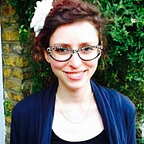ASE conference primary day
What a day. So many people and things to see, do and learn! Thanks so much to all the knowledgeable and experienced people who shared at the ASE conference today — so much hard work goes into every session, and I wish I could have seen more of them. My foci were primary science, misconceptions, and addressing imbalances in participation in science. Brief summaries and links for further reading below…
1. Michael Reiss shared updates from the Chemistry for All project, funded by @RoySocChem – look forward to seeing the final report in summer 2019 https://www.ucl.ac.uk/ioe/case-studies/2016/jul/chemistry-all
2. Lovely bubbles by @EmmaCrisell at the schools’ exhibition. Nail varnish on water, washing up liquid — blow bubbles inside bubbles.
3. Making STEM for everyone: reaching under-served audiences.
4. Developing child-led enquiry in primary science, Charlotte Jackson
5. Lovely little physics challenges from the physics olympiad.
6. Cracking science education books and journals from the NSTA.
7. Latest STEM challenge from Practical Action — the solar challenge.
8. Royal Academy of Engineering — lovely online resources. I especially love the chocolate printer…
9. NPL posters on measurement
10. Lovely little hand-powered Van de Graaff generator!
11. Periodic table bingo & volcanoes from RSC
12. Best Evidence Science Teaching (BEST)resources from UYSEG — aimed at KS3 but also useful for upper KS2 and lower KS4.
13. Lovely lesson plans for teaching the nature of science from Perimeter Institute.
14. WhizzPopBang! now have lesson resources including guided reading questions to accompany the magazines.
15. Ask for Evidence lesson plans from Sense about Science
16. CLEAPSS fab as ever for everything practical — and best pun of the conference…
17. The Royal Institution have new ‘off the shelf’ primary maths masterclasses.
18. At the primary pop-up: working out the volume of pear, science in my pocket, and new BBC teach resources.
19. What are students (and teachers) really thinking? It was fantastic to hear about formative assessment probes directly from Page Keeley, who has spent so much time and thought on them as a teacher and a researcher. And she gave me a copy of her book at the end (a reward for my enthusiasm during the session!), in which she kindly wrote some lovely words.
20. Lovely art work in the University of Birmingham physics department.
21. Science capital in primary schools — Alex Farrer and Sally Maskell helpfully sharing what they had learnt from applying the science capital teaching approach to their work in primary schools.
22. Drama & Science — Kathryn Horan. I was super late to this session due to lots of things I wanted to see overlapping, but having been caught up by some fellow primary science pals it was clearly very useful!
